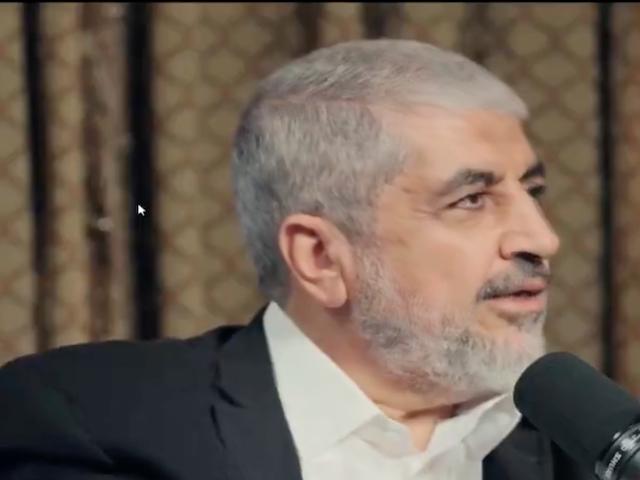In the wake of the horrific attack by Palestinian militants that resulted in the tragic loss of 21 Israeli soldiers – marking the deadliest assault on Israeli forces since the onset of the current conflict – while it has been Hamas that has been rejecting all the overtures for a ceasefire and setting the rules for hostage releases, there is growing international pressure on the Israeli government to enter hostage negotiations. Despite these calls for dialogue, recent developments indicate a complex and challenging diplomatic landscape.
Senior Egyptian officials, speaking under the condition of anonymity, informed various news outlets, including the Associated Press, of Hamas's rejection of a generous Israeli offer. The proposed two-month ceasefire aimed to secure the release of over 130 hostages held by militants, alongside the release of thousands of Palestinians from Israeli detention. Additionally, the deal offered a relocation opportunity for Hamas leaders from Gaza to other countries, showcasing Israel's commitment to peace and stability.
Important to clarify:
— Asher Fredman אשר פרדמן (@fredman_a) January 20, 2024
Hamas has not said that in return for a full ceasefire, they will release the hostages.
Hamas has said that after a ceasefire & Israeli withdrawal, they will be ready to begin negotiations regarding the hostages.
The two are very different things.
Contradictorily, Hamas's demands continue to escalate. As per the same Egyptian official, Hamas insists on the complete withdrawal of Israeli forces from Gaza and an end to the military offensive as preconditions for any further discussion on hostage release. The Wall Street Journal reports a potential Hamas willingness to negotiate the release of some captives in exchange for a significant reduction in hostilities, yet this remains unconfirmed.
The recent militant massacre of Israeli soldiers on October 7th has disturbingly revitalized ambitions for a Palestinian state that encompasses the entirety of Israel's sovereign territory. Khaled Mashaal, a senior Hamas official and a billionaire residing in Qatar, vocalized this intent in a widely circulated Kuwaiti podcast. Dismissing the concept of a two-state solution, Mashaal rejected any recognition of the State of Israel, advocating for a Palestinian state extending from the Jordan River to the Mediterranean Sea. This stance directly challenges the internationally supported vision of coexistence and peace.
‘Any statement we hear for the time being is meaningless because of Hamas’s negotiation tactics and their bluffs, we don't know what’s on the table’
— i24NEWS English (@i24NEWS_EN) January 23, 2024
Dr. David Shimoni of @cisorgil assesses the status of negotiations for a hostage release deal pic.twitter.com/rNe6K0BtOx
Mashaal's remarks also reflected a disregard for the catastrophic consequences of militant aggression in Gaza. Despite 17 years of Hamas rule in the region, he downplayed the suffering and devastation inflicted upon both Gazans and Israelis, illustrating a concerning indifference to the human cost of the conflict.
In a further complication, Iran's Supreme Leader Ayatollah Ali Khamenei has urged Muslim countries to sever all political and economic ties with Israel. Demonstrating support for the militants in Gaza, he optimistically predicted their victory in the ongoing conflict, disregarding the broader implications for regional stability and peace.
Hamas Leader Abroad Khaled Mashal: We Reject the Two-State Solution; October 7 Has Shown that Liberating Palestine from the River to the Sea Is Realistic and Has Already Begun #Hamas #Israel #Palestinians #Gaza pic.twitter.com/fcnUsbzRN1
— MEMRI (@MEMRIReports) January 21, 2024
Meanwhile, Jordanian Foreign Minister Ayman Safadi, representing a nation that both shares a border with and recognizes Israel, accused Israel of violating international law at a U.N. meeting. His allegations of war crimes and obstruction of peace efforts underscore the intense diplomatic pressures Israel faces on the international stage.
"From the river to the sea" is now not only the position of Hamas and Palestinians but also of Western people, especially students, says Khaled Meshal, leader of Islamist Hamas whose stated mission it is to destroy Israel and exterminate the Jews.
— Ridvan Aydemir | Apostate Prophet (@ApostateProphet) January 22, 2024
Good job, useful idiots. pic.twitter.com/XS0Z3CeB7Z
As the situation continues to evolve, the Israeli government remains steadfast in its commitment to safeguarding its citizens and pursuing lasting peace and security in the region, despite facing a complex array of challenges and geopolitical opposition.


